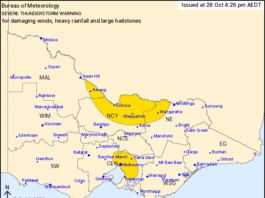BY HELEN HAINES
As we hurtle towards the next federal election, I often reflect on the months leading up to the last one. During those dying days of the Morrison government, the public and political push for a federal corruption watchdog was at its peak.
The lack of accountability for the devastating robodebt scandal and allegations of bullying and sexual assault at Parliament House left people angry and wanting to see justice done.
As part of what was then a much smaller crossbench, I was fighting doggedly to push the government to establish a robust, independent federal integrity commission.
At every turn, it felt as if Scott Morrison sought to delay and distract to block our efforts. Without a doubt, his dismissal of the electorate’s desire for an anti-corruption commission with teeth cost him and his party at the polls. It was a critical issue in the historical success of independents at the last federal election.
A lot has changed in three years. Most notably, we finally have a legislated National Anti-Corruption Commission.
Well into the NACC’s second year of operation, following the release of its first annual report and first public hearing of the joint parliamentary oversight committee – and with an election looming – it’s time to reflect on how well the NACC is working.
Is it fulfilling its intention to expose corrupt conduct? Is it living up to the public’s expectations to hold public officials accountable for misconduct? Is it restoring public trust in government and politicians?
These are thorny questions because the work of the NACC to date has been undertaken almost entirely behind closed doors. The decisions we do know about have left the commission open to criticism, including concerns about the lack of transparency and the restrictive “exceptional circumstances” test for public hearings. Australians are watching the NACC’s performance and expect it to deliver real accountability, not just symbolic reforms.

It is with this expectation in mind that we consider the NACC’s reversal, announced this week, of its initial decision not to investigate the six people who were referred to it by the Royal Commission into Robodebt.
That initial decision, from June last year, was an early misstep for the new commission. It drew more than 1000 complaints to the NACC inspector Gail Furness. Though the move by the independent reviewer, Geoffrey Nettle, KC, to relaunch investigations is welcome, we know little more at this stage about how or why this has come about. Now, as has been the case throughout its short life, the NACC’s workings are largely invisible to a concerned public.
Robodebt, and the investigation into the government contractor Paladin, were the NACC’s highest-profile cases, but certainly not the only ones the NACC has handled in its first 18 months or so of operation.
Because we know so little about the other cases, however, they can have minimal impact on building its reputation or the public’s trust in the institution. Investigations should not be rushed, but their invisibility is doing little to assuage the public that politics is actually changing.
This veil over the commission’s investigations can be traced back to its legislation.
Currently, the National Anti-Corruption Commission Act states that hearings are generally private. To merit a public hearing, the issue in question must clear two hurdles: the commission must be satisfied it is in the public interest and that there are exceptional circumstances to justify the transparency.
This second hurdle – referred to as the exceptional circumstances test – was included in the NACC legislation at the very last minute by the Albanese government. This small but significant inclusion effectively shut the door to public scrutiny of the NACC and its investigations.
How the exceptional circumstances provision even made its way into the legislation is extremely hazy.
It wasn’t mentioned in Labor’s design principles for the NACC, released just prior to the 2022 federal election. It wasn’t included in materials presented to me at a stakeholder roundtable held by the attorney-general in June 2022.
Like the rest of the Australian public, I first became aware of the exceptional circumstances provision when the NACC bill was introduced to parliament in late September 2022.
At a hearing of the committee examining the bill, I asked officials from the attorney-general’s department when the exceptional circumstances provision was added.
The question was taken on notice, and subsequently the attorney-general wrote to the committee claiming public interest immunity over this information, saying it “would, or might reasonably be expected to, disclose the deliberations of cabinet”.
Its late inclusion, without clear explanation or justification, leaves me and others to draw our own conclusions. We can only assume it was deal done between the two major parties: a commitment elicited from Labor by the Coalition to secure bipartisan support for the bill.
The Coalition’s opposition to public hearings is well recorded. They cited concerns about unfair damage to reputations and mental health impacts if hearings were to be conducted in public and said it would be unfair to have public hearings when court-like rules of evidence don’t apply.
It’s important to note there are very few in the Coalition’s corner when it comes to this test and a presumption for private hearings of the NACC.
Experts warned the definition of “exceptional circumstances” was so vague, so open to interpretation, that any decision by the commission to hold a public hearing would likely become tied up in litigation and obstruct the NACC’s ability to conduct public hearings.
Despite the warnings, the political deal between the two major parties persisted and the test was included in the bill.
The impact of this additional test became clear late last year, at the inaugural parliamentary hearing on the NACC’s annual report.
As deputy chair of the parliamentary committee that has oversight of the NACC, I questioned Commissioner Paul Brereton on how many public and private hearings had taken place, and whether the exceptional circumstances test had been considered.
We heard the NACC had 29 corruption investigations underway. Six of these relate to former or current parliamentarians, three to former or current parliamentary staff, five to contractors or consultants, seven to senior executive officials and eight to law enforcement officials. Three of the investigations involve grants schemes.
It was confirmed that no public hearings have been held to date.

The parliamentary committee revealed the NACC has conducted private hearings relating to seven separate investigations, involving 26 witnesses. The NACC has not been satisfied that exceptional circumstances exist for any of their hearings to be held in public.
While the committee shed light on how many hearings have taken place in private, we gained almost no further understanding of what might constitute an exceptional circumstance.
Under questioning, the commissioner offered “we’ll know exceptional circumstances when we see them”.
This raises a big red flag for me, because it means we can’t test these decisions or debate them in any way.
A key purpose of the NACC is to make findings of corruption. To expose conduct that is dishonest, unethical, a breach of public trust, a misuse of a public official’s powers.
As a legislator, it is difficult to determine whether the NACC is meeting its purpose when these hurdles and how they are applied are so nebulous.
This is a direct consequence of the deal done between the major parties to add just one extra line to the NACC’s governing legislation.
Where to from here?
When public trust is so low, there is a clear case for amending the NACC Act to enhance protections, while ensuring the most critical corruption investigations are not hidden away.
As Stephen Charles, QC, reminds us in his book Keeping Them Honest, public hearings “are a crucial mechanism in meeting corruption commissions’ objectives of promoting integrity and investigating and exposing corruption”.
Back in November 2022, when the NACC bill was being debated in the House of Representatives, I put forward amendments to remove the exceptional circumstances test so that the NACC may decide to hold a public hearing when it is in the public interest.
This does not mean throwing the doors wide open and holding every hearing in public. Safeguards must exist – and they can be carefully designed.
In responding to the Coalition’s fears that public hearings may have grave mental health impacts on those required to appear, my amendments included a list of factors the commission must consider when deciding to hold a public hearing – such as unfair prejudice to a person’s reputation, or concerns over privacy safety or personal wellbeing caused from a public hearing.
These amendments would remove the high yet ambiguous hurdle of exceptional circumstances and insert precise and balanced safeguards in its place. Of course, the major parties teamed up against much of the cross-bench to vote them down.
The first 18 months of the NACC have demonstrated that removing the exceptional circumstances test remains more relevant than ever. The NACC will now decide whether or not to hold public hearings in its investigation of robodebt. This involves considering whether exceptional circumstances will apply.
I’ve often said the work of integrity is never done. While removing the exceptional circumstances test will not be achieved in this 47th parliament, it should be a firm starter for the 48th. Given the propensity of both major parties to use integrity as a slogan instead of a governing principle, and the looming prospect of a minority government, the crossbench will have a critical role to play in ensuring a gold standard is delivered.
With the establishment of the NACC, Australians were promised a new era of transparency and accountability. That work is not done and we must continue the work to deliver that promise. The first step is removing the overreach of the exceptional circumstances test.
First published by Helen Haines.
Federal MP for Indi, Haines, H. (2025, February 22) The cost of NACC secrecy. Commonwealth Parliament of Australia.
https://www.helenhaines.org/media/the-cost-of-nacc-secrecy/
Haines, H. (2025, February 22) “The cost of secrecy” The Saturday Paper.
https://www.thesaturdaypaper.com.au/comment/topic/2025/02/22/how-regain-public-trust-the-nacc
Helen Haines MP is the independent Federal Member of the (Victorian), House of Representatives seat of north-east Victorian seat of Indi.




